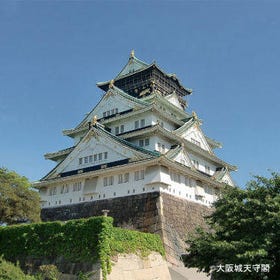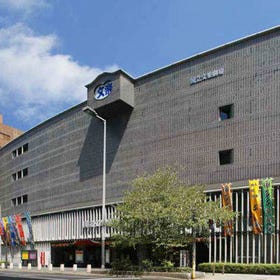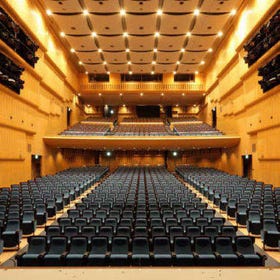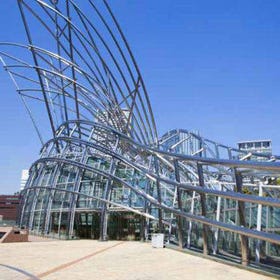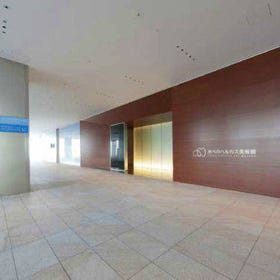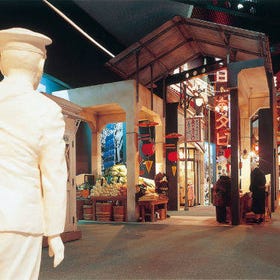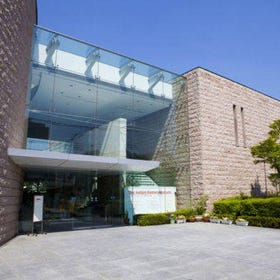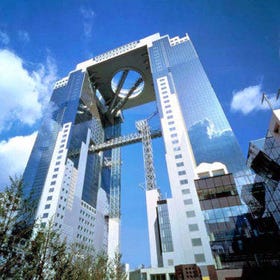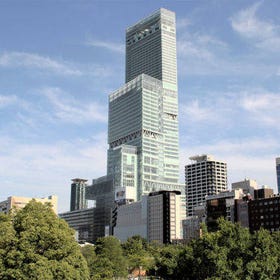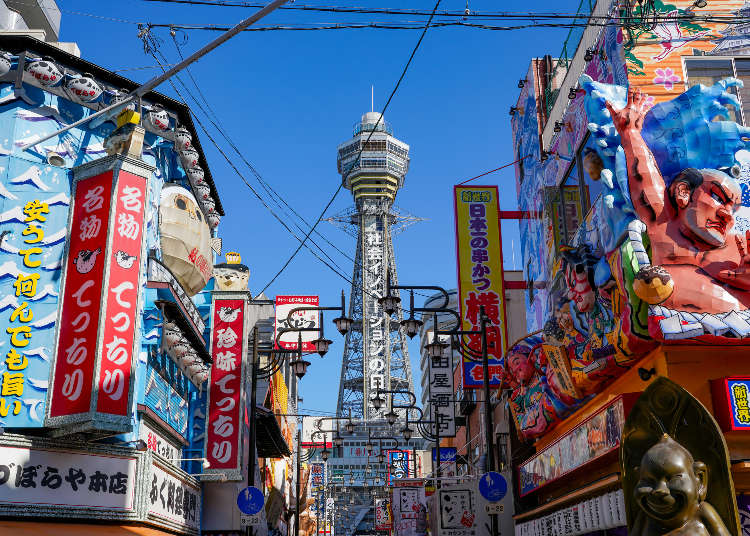
Osaka City Guide: Destinations, Activities, Travel Advice, Shopping & More
- Written by: WESTPLAN
After Tokyo, the second most prominent city of Japan is Osaka (大阪). The Osakan neighborhoods of Dotonbori and Shinsekai have a bustling, exotic vibe rarely matched elsewhere, while the streets surrounding Osaka Station present a more refined, polished aesthetic, allowing travelers to experience the many faces of Japan all in one city.
This article will provide a complete overview of Osaka’s cuisine, transport, seasonal sightseeing, activities, and more! If you’re planning to put Osaka on your Japan itinerary, this overview will ensure you experience everything the city has to offer!
Image: PIXTA
- Table of Contents
-
- 1. Quick facts about Osaka
- 2. When is the best time to visit Osaka?
- 3. Getting to Osaka from Tokyo and getting around Osaka
- 4. Accommodations: Where to stay in Osaka
- 5. Must-try foods in Osaka
- 6. Cultural things to see in Osaka
- 7. Recommended activities and things to do in Osaka
- 8. Shopping in Osaka
- 9. Other sightseeing hotspots around Osaka
1. Quick facts about Osaka
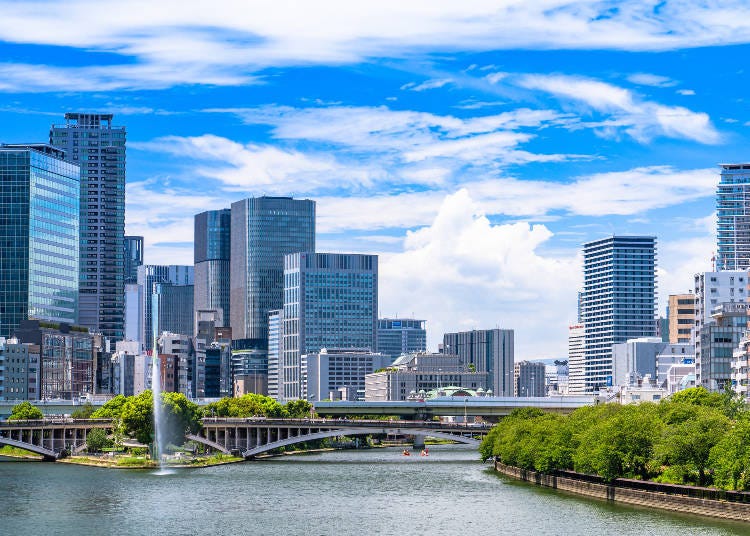
With a population of over 8 million, Osaka is the largest city in western Japan. It boasts a history reflecting the center of Japanese politics, finance, and culture. It has an abundance of perfectly preserved historic buildings and shrines/temples along with the World Heritage Site of the Mozu-Furuichi Kofungun Tombs.
Meanwhile, the Osaka of today is largely characterized by flashy downtown business facilities and rows of high-rise office buildings, all encompassed by a comprehensive transport network. And the Osaka City Metro subway lines make getting around a breeze.
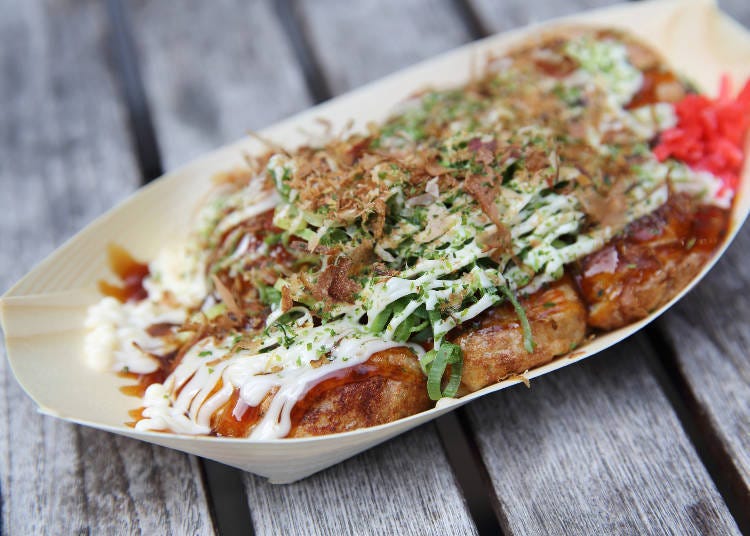
Of course, perhaps Osaka’s biggest claim to fame is the culinary culture, with its long-established nickname of “The World’s Kitchen” setting the stage.
Beginning in the 17th century, Osaka flourished as a center of trade for rice and regional delicacies, developing a culture based around well-priced, delicious food. This culture remains today, culminating in the cheap, flour-based fried dishes known as “konamon,” which includes the highly coveted takoyaki octopus balls and okonomiyaki pancakes.
2. When is the best time to visit Osaka?
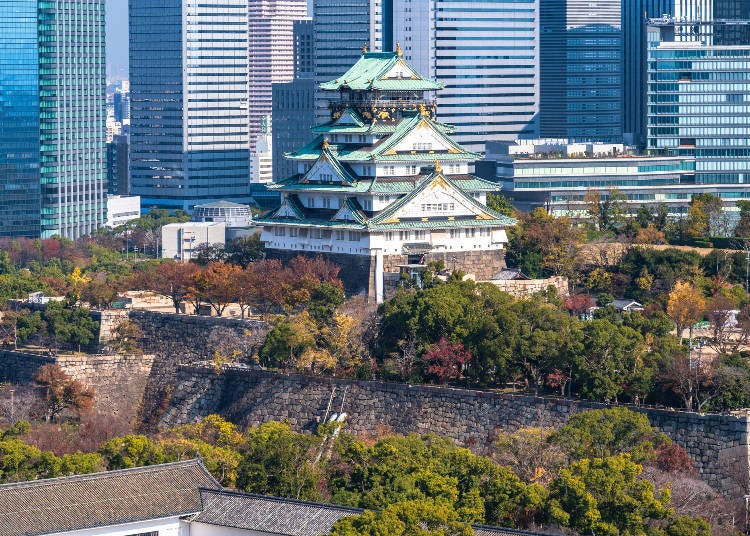
Each region on the main Japanese island of Honshu experiences the differences between spring, summer, autumn, and winter starkly. Osaka is no exception, with the typical pleasant springs and autumns along with humid summers and dry, cold winters. Spring and autumn are often considered the best times to visit Osaka.
However, the center of Honshu is generally more prone to sweltering summers and low rainfall throughout the entire year. Winter snow does not fall often, and even if it does, it will only pile up to a few centimeters.
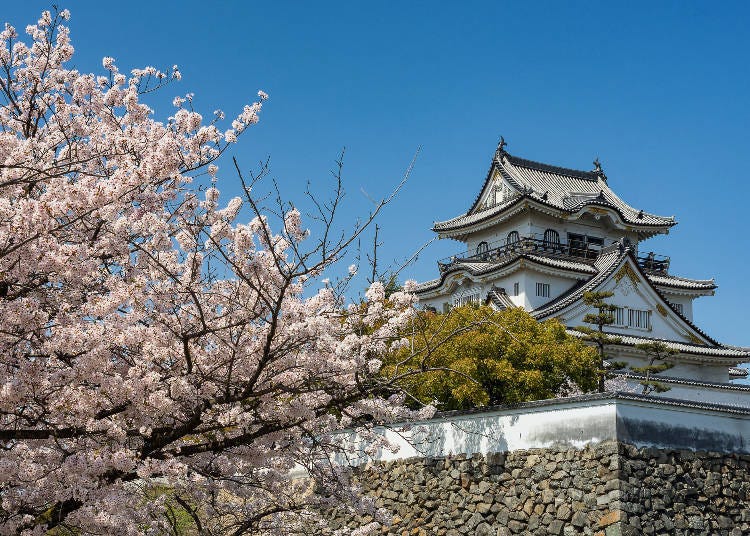
Spring: The Time of Cherry Blossoms!
Spring is the season to relish the beauty of cherry blossoms, and Osaka is the perfect place to do it!
One of the most famous locations is Osaka Castle Park, which boasts an incredible garden brimming with stunning cherry blossoms. You can snap the iconic picture of Osaka Castle framed by cherry blossoms at the Nishinomaru Garden (costs an entrance fee).
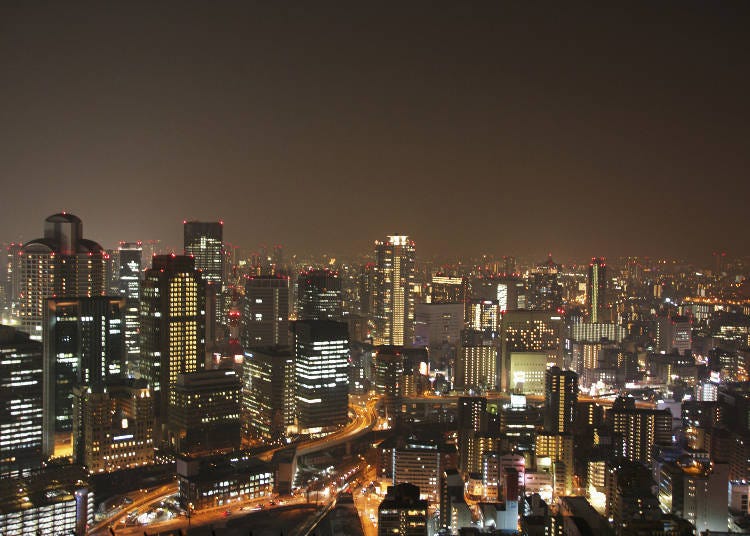
Summer: Too Hot to Be Outdoors
Summer in Osaka is hot and humid, making it better for those looking to beat the heat to enjoy Osaka’s plethora of indoor attractions.
One great place to do this is the Osaka Aquarium Kaiyukan, one of the largest aquariums in the world. You can also take in a stunning panorama of Osaka City at the Kuchu Teien Observatory in the Umeda Sky Building. If you can’t stand the heat of summer, Osaka has plenty to do inside refreshing, air-conditioned buildings!
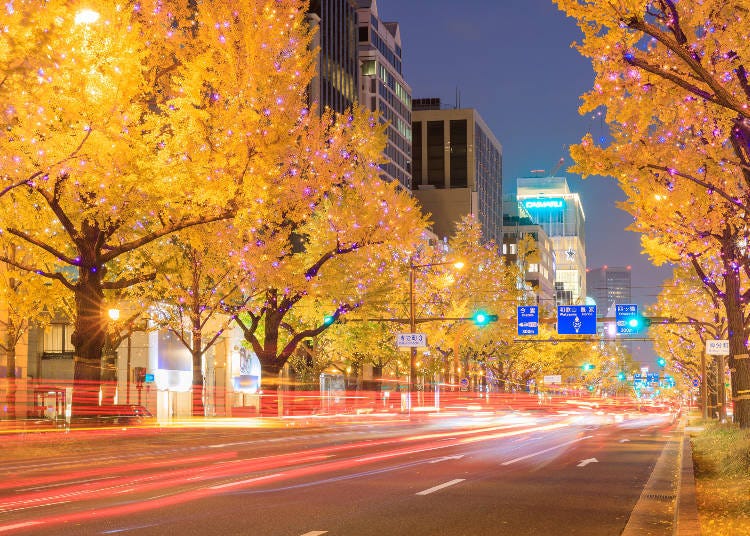
Autumn: A Pleasant Time to Sightsee Both Indoors and Out
Autumn sees the weather of Osaka become calm and agreeable, making outdoor sightseeing a breeze. Similar to spring, autumn is a great time to visit Osaka Castle Park to witness the fiery fall foliage. You can also spot rows of golden ginkgo trees along the Mido-suji, a main street running north-south through central Osaka.
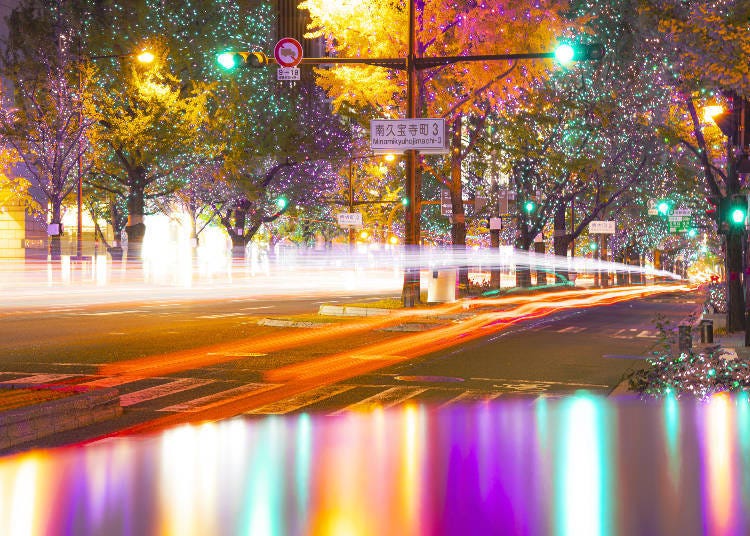
Winter: Enchanting Citywide Illuminations!
Winter dries out the air of Osaka, making the dozens of illumination festivals appear even more clear and beautiful.
Starting with the dazzling neighborhood of Shinsekai, winter is the peak time to fully soak in the boundless cityscape and flashy neon lights. Illumination festivals are often held at iconic places like Osaka Castle Park, Mido-suji, and many more.
3. Getting to Osaka from Tokyo and getting around Osaka
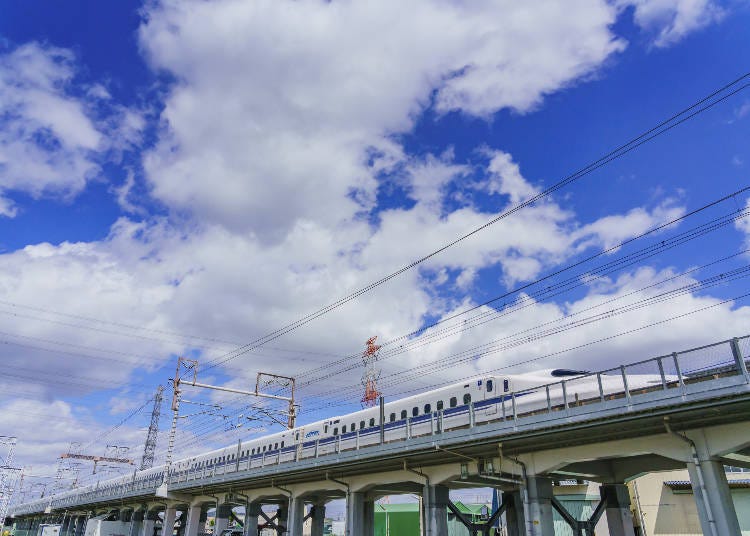
Being a major metropolis, the public transport systems of Osaka are very well developed and will allow you to travel virtually anywhere in Japan. Below we’ll take a look at access to Osaka from Tokyo along with the most convenient ways to get around Osaka itself.
Getting to Osaka From Tokyo
・Bullet Train (Shinkansen)
Being fast, comfortable, and frequent, the bullet train (shinkansen) is one of the most common ways to get from Tokyo to Osaka. From JR Tokyo Station or Shinagawa Station, you can travel to JR Shin-Osaka Station via the Tokaido Shinkansen in roughly two and a half hours. A one-way ticket from Tokyo Station to Shin-Osaka Station will cost 13,870 yen (14,520 yen for a reserved seat, 19,390 yen for a green car seat). (*During regular periods.) The Japan Rail Pass is a good way to save on a trip from Tokyo to Osaka.
・Airplane
You can get to Osaka International Airport (ITM) or Kansai International Airport (KIX) from both Narita International Airport (NRT) and Haneda Airport (HND). We particularly recommend going from Haneda Airport to Osaka International Airport (Itami), as the flight is just a little over an hour and both are close to their respective cities. While the price will change depending upon time and season, you can generally expect a ticket to be no greater than 10,000-20,000 yen.
・Overnight Bus
Costing as little as 3,000 yen, if you’re seeking cheap travel, then the overnight bus from Tokyo to Osaka is your best bet! There are many different busses available, including 4-seaters that take around 9 hours to luxury 3-seaters offering a more enjoyable journey. Also, as you’re spending the night on the bus, you’ll save considerable money on accommodation! However, some of these luxury busses can cost up to 15,000 yen, so be careful when booking.
Public Transport Within Osaka
Osaka City has JR lines, subway lines, and private railway lines, allowing commuters and travelers alike to reach their destinations directly with minimal fuss. With such superb public transportation facilities, renting a car or taking a taxi is generally unnecessary.
Furthermore, if you want to tour the city and see many places, we recommend purchasing the thrifty Osaka Amazing Pass. This pass includes free entrance to participating facilities through a barcode on the ticket alongside a guidebook filled with coupons and a specially made smartphone app. With this pass, you can take in the best of the city without breaking the bank, including places like the Kuchu Teien Observatory, Tombori River Cruise, and Osaka Castle.
4. Accommodations: Where to stay in Osaka
Naturally, Osaka hosts a wealth of accommodation facilities of different price ranges and styles. Here we’ll introduce some of the best Osakan neighborhoods to stay in for a short trip!
Namba: The Best Base For Sightseeing
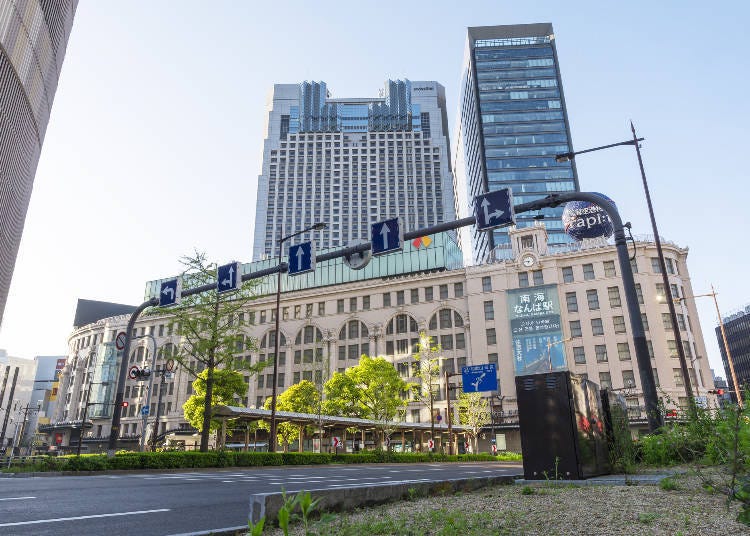
Many famous Osakan sights like Dotonbori and Ebisubashi Bridge are based around the “Minami” area centered on Namba Station. With this in mind, if you want to relish the sights and sounds of central Osaka thoroughly, we recommend staying close to Namba Station.
If you’re seeking something affordable, there are loads of cheap capsule hotels and dormitories, making it particularly popular with backpackers.
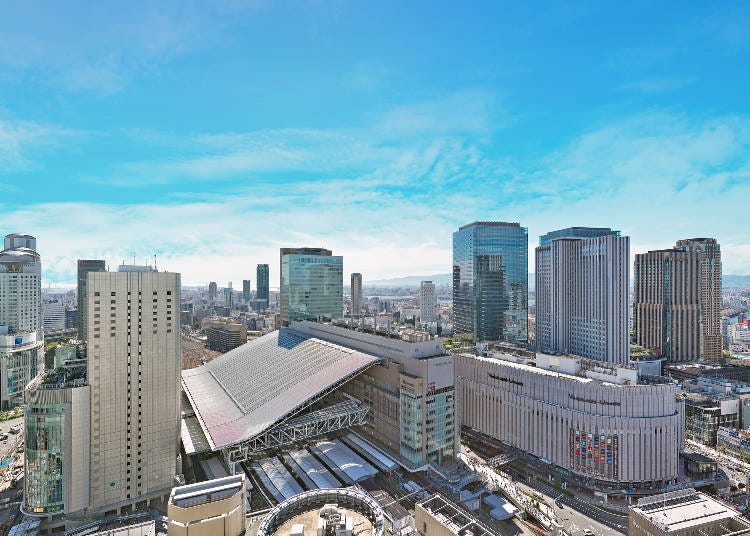
Umeda: Stay in Peak Luxury!
For those seeking exceptional service and luxury, we recommend staying around the “Kita” area nearby Osaka Station and the Umeda Subway Station. Many famous hotel chains have bases here, including the InterContinental Hotel Osaka, and The Westin.
Honmachi: For Stylish, Swanky Hotels!
If a hostel seems too casual and a high-class hotel too stuffy, we recommend searching for accommodation in the Honmachi area between Umeda and Namba. Being a business district, there isn’t much in the way of sightseeing. However, plenty of affordable, stylish lifestyle hotels frequented by professionals make for a great stay. Plus, you’ll be able to reach other sights via the comprehensive subway services nearby easily.
5. Must-try foods in Osaka
From takoyaki to okonomiyaki, Osaka is a paradise for gourmands! Make sure you don’t leave the city without trying each of the following!
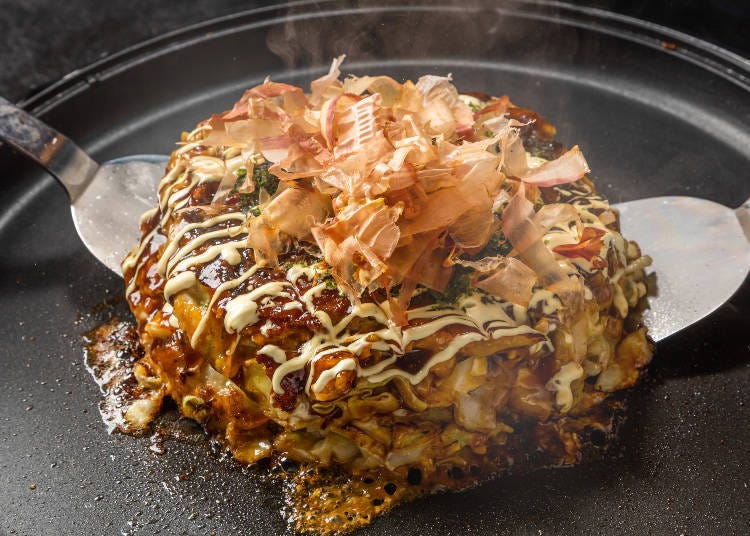
Minami for Takoyaki and Okonomiyaki
The most famous Osakan foods are takoyaki and okonomiyaki. For the best of the best, head to the Minami area around the Namba Subway Station. In particular, there are lots of outlets in Dotonbori serving international visitors with English, Chinese, and Korean menus available.
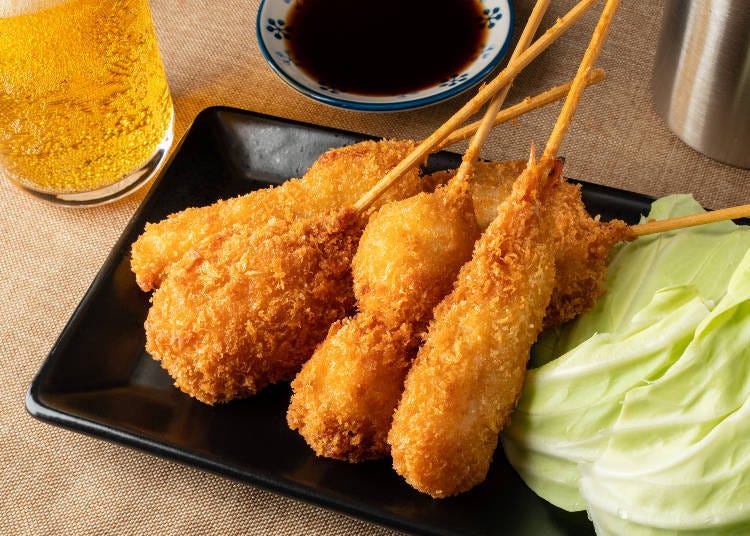
Shinsekai For Kushikatsu
The flashy neighborhood of Shinsekai, accessible from the Dobutsuen-mae Subway Station or JR Shin-Imamiya Station, is renowned for its collection of eateries serving top-tier deep-fried skewered meat and vegetables known as kushikatsu.
Here you’ll be able to relish fresh kushikatsu from a variety of ingredients enhanced by a mouth-watering dipping sauce. Since the dipping sauce is shared, double-dipping is a huge no-no; however, due to the COVID-19 pandemic, most establishments now provide sauce separately. The crunchy batter and juicy insides together with the tart sauce are the perfect counterparts to a glass of beer or two!

Kuromon Market to Learn About Japanese Ingredients
Markets are a window into the culinary culture of a specific locality. Kuromon Market, located right near the Nippombashi Subway Station, bursts with an exciting range of small, local shops selling all kinds of local ingredients. Originally intended for professional chefs to source and gather fresh ingredients for their restaurants, the products on offer here are truly one of a kind. You can purchase a pre-cooked meal to enjoy at your hotel or at the eat-in spaces attached to some of the market’s stores. In addition to the classics like takoyaki and okonomiyaki, you can also chow down on some teppanyaki grilled meats, sushi, and more!
There are also plenty of foodie hotspots around Osaka and Umeda Stations. Being one of Japan’s leading commercial districts, Umeda naturally hosts a flourishing restaurant scene suiting a wide range of people. In particular, to fill the stomachs of busy professionals, there are lots of casual eateries serving voluminous lunches on the cheap alongside stylish, elegant cafes to unwind in between work. If you feel overwhelmed about where to eat in Osaka, head to Umeda first!
6. Cultural things to see in Osaka
The residents of Osaka speak in a distinctive dialect known as “Kansai-ben.” This way of speaking is said to be more casual than regular Japanese, making the locals feel welcoming and friendly. Below, we’ll introduce some places to seek out more of Osaka's unique cultural attributes, allowing a greater understanding behind its immense popularity!
Relish Incredible Traditional Art and History
Since long ago, Osaka was celebrated as a region steeped in the traditional arts of “Kamigata Bunka.” Its extensive history is also deeply intertwined with Japanese politics and culture as a whole, seen today through the myriad of remaining historical buildings and localities.
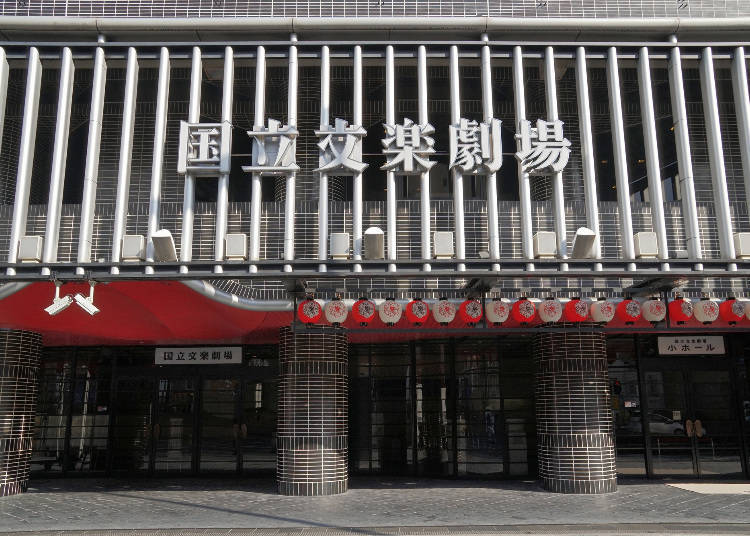
Recommended Historical and Cultural Facilities
・Osaka Castle (Tanimachi Yonchome Station/Osakajokoen Station): Alongside the majestic castle tower, you can enjoy the sights of fall foliage and cherry blossoms in the Nishinomaru Garden, amongst numerous other scenes and highlights.
・National Bunraku Theatre (Nippombashi Station): Here, you can view “bunraku,” a form of traditional Japanese puppet theatre.
・Namba Grand Kagetsu (Namba Station): One of the centers of Japan’s stand-up comedy culture.
・Osaka Prefectural Museum of Kamigata Comedy and Performing Arts (Namba Station): A museum showcasing the Osakan art of comedy, a key part of the city’s cultural identity.
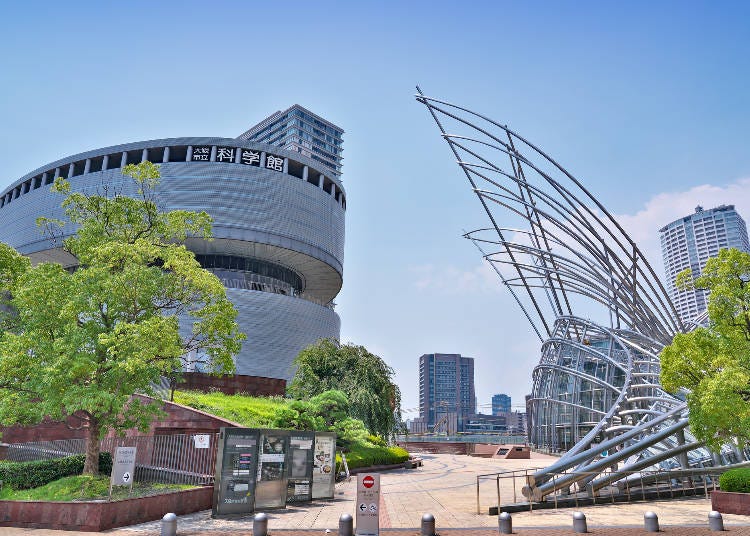
Explore Art Galleries and Museums
Being the central metropolis of western Japan, Osaka is naturally home to a number of highly esteemed art galleries and museums.
Recommended Art Galleries and Museums
・The National Museum of Art, Osaka (Nakanoshima Station): Hosts a collection of contemporary art from both Japan and overseas. The spacious entrance hall is also a highlight.
・Abeno Harukas Art Museum (Tennoji Station): Located on the 16th floor of the Abeno Harukas skyscraper building. The view from here is also astounding.
・Osaka Museum of History (Tanimachi Yonchome Station): Filled with authentic relics and recreations illustrating the history and culture of Osaka.
・CUPNOODLES Museum Osaka Ikeda (Ikeda Station): Opened in Ikeda, known as the birthplace of instant ramen. Here you can make your own original cup of noodles!
7. Recommended activities and things to do in Osaka
Nicknamed the “City of Water,” Osaka is crisscrossed by a vast network of rivers and waterways, making for fun-filled activities like cruises and riverside strolls.
In addition, for an overview of just how massive Osaka is, we recommend ascending one of the city’s numerous observation platforms. The most famous are the Umeda Sky Building and Harukas 300.
Another top-rated attraction guaranteeing a fun-filled day out is the Universal Studios Japan (USJ) theme park. There are loads of thrilling, dynamic rides, attractions, and character shows only available in Japan, making a visit to USJ almost synonymous with a trip to Osaka itself.
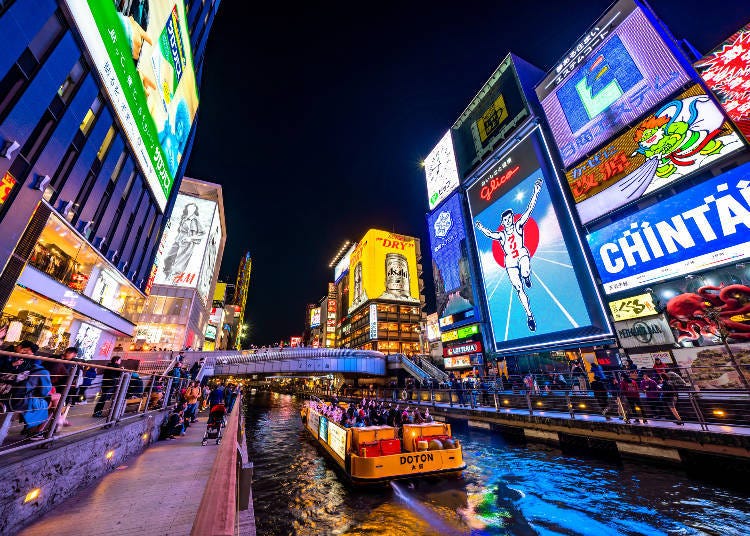
Recommended Activities:
・Umeda Sky Building (JR Osaka Station/Umeda Station): The Kuchu Teien Observatory presents a jaw-dropping panorama of Osaka from the rooftop of the 40-story Umeda Sky Building
・Harukas 300 (Tennoji Station): Unrivaled views of Osaka are also available from the observation deck of the 300-meter Abeno Harukas building - the tallest building in Japan!
・Tombori River Cruise: A sightseeing cruise on a small boat passing alongside the flashy neon lights of Dotonbori. A relaxing and fun way to soak in the dynamic streets of Minami.
・Indy Cruise: A roughly 70-minute cruise between Dotonbori and Universal Studios Japan, allowing you to slowly absorb the cityscape of Osaka from the water.
・Universal Studios Japan (JR Universal City Station): A legendary theme park with a wide range of different attractions featuring characters and franchises beloved across the world.
8. Shopping in Osaka
Osaka’s premier shopping districts are the Kita and Minami areas. Both boast enormous collections of prominent retailers and department stores featuring all the top brands along with simpler, everyday shopping like 100 yen and drug stores.
Like most of Japan, there are convenience stores and supermarkets around every corner, even outside Kita and Minami. There will likely be a 24-hour convenience store within walking distance from your location, so you don’t need to pack much food or water during your outings.

Shopping in Kita
The Kita area, known as the gateway to Osaka, bursts at the seams with classy, modern shopping facilities. Kita department stores exhibit all the latest Japanese fashion trends and luxury brands, making it ideal for those planning on doing some serious shopping!
Recommended Shopping Spots in the Kita Area
・Grand Front Osaka: A shopping mall directly connected with JR Osaka Station offering fashionable clothing and food.
・LINKS UMEDA: Close to the north ticket gates of the Umeda Subway Station. The shopping here is more casual, including drug stores, brands like Uniqlo, and a supermarket.
・HERBIS: A classy, chic department store centered around luxury brands and interior decorations.
・100-Yen Stores: There are 100 yen stores at the HANKYU Umeda Store, Hanshin Department Store Umeda, and Daimaru Umeda.
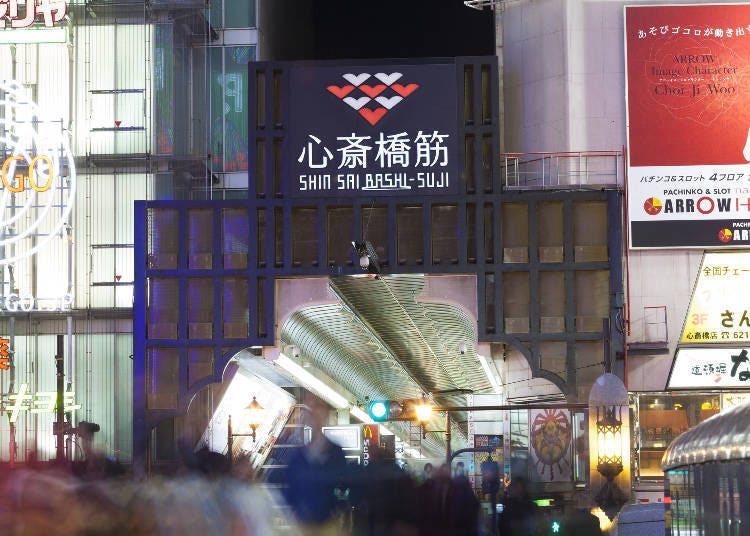
Shopping in Minami
The Minami area is home to iconic Osaka hotspots like Dotonbori and more, naturally cultivating many souvenir stores catering to sightseers. However, there are also ample opportunities in Minami to get your hands on luxury goods too!
Recommended Shopping Spots in the Minami Area
・Shinsaibashi-Suji/Ebisu Bashi-Suji Shopping Street: The definitive Minami shopping street. Literally overflowing with people, there is a staggering selection of fashion retailers, souvenir stores, drug stores, and eateries to explore.
・Amerikamura (American Village): A youth-orientated neighborhood boasting fashionable brands and vintage clothing. The preferred hangout hub for those following alternative lifestyles.
・BICCAMERA Namba Outlet Store: An electronics mega-store selling all the latest gadgets alongside bicycles, watches, suitcases, glasses, alcohol, and more.
・Den-den Town: Packed with rows of small-scale, local electronics stores often considered the Akihabara of Osaka. A great place for bargains on appliances, audio equipment, tools, and more.
・Brand Street: On the intersection between the Mido-suji and Nagahori-dori roads is a hub of directly managed luxury brand stores like Chanel, Cartier, Louis Vuitton, and Dior.
・100-Yen Stores: There are 100-yen stores in the Daimaru Shinsaibashi Main Building and the Osaka Takashimaya department store.
9. Other sightseeing hotspots around Osaka
From Osaka, it’s easy to access just about anywhere in the Kansai region by train, including Kyoto, Nara, Hyogo, Wakayama, and Shiga. Below we’ll briefly introduce each of these areas and how to get there, along with their highlights.
If you want to try and visit as many of these locations as possible in a day, we recommend getting the Kansai One Day Pass. You’ll be able to freely ride with unreserved seats on regular JR trains along with the Osaka Aqualiner waterbus as many times as you like in a day. You can also use it to rent bicycles, making it even easier to get around.
Kyoto
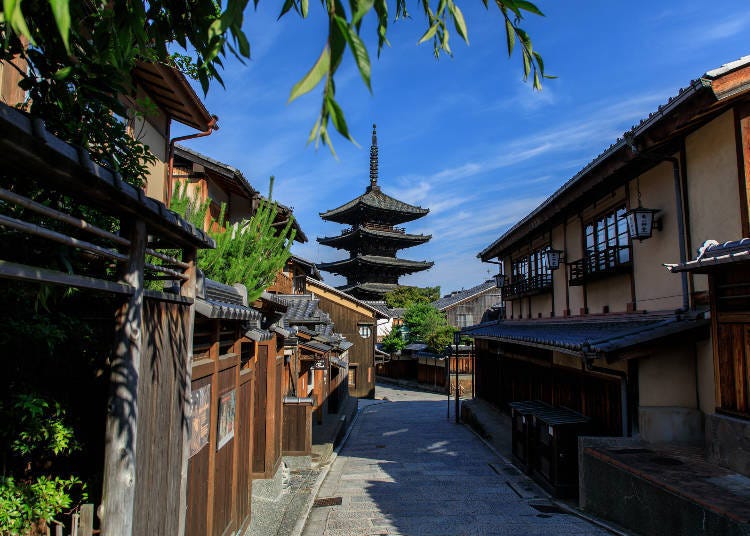
A tapestry of enchanting temples and shrines, Kyoto is a place to step back in time and witness the charm of ancient Japanese streetscapes. You can get to Kyoto Station from Osaka Station via the new rapid train in just 30 minutes using the JR lines.
On the Keihan Electric Railway, you can go from Yodoyabashi Station to Gion-Shijo Station in around 50 minutes on the special rapid train. Popular places to visit include the tranquil bamboo grove and the rustic townscape of Arashiyama, along with the bustling central geisha district of Gion.
Nara
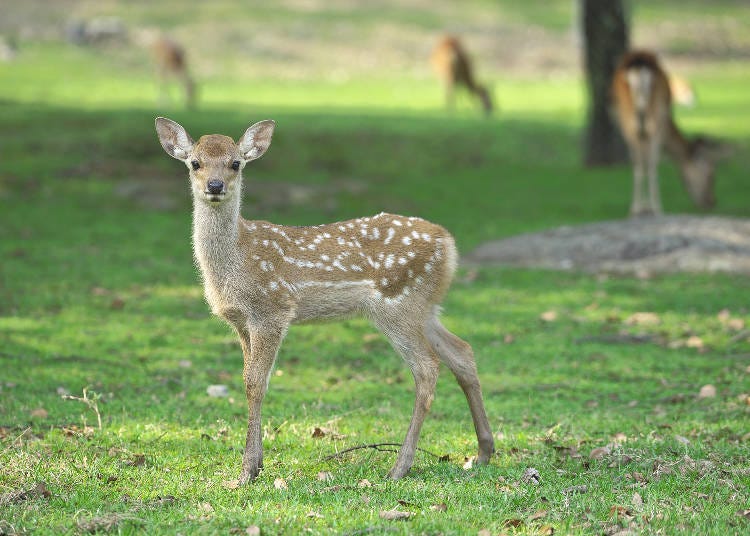
Similar to Kyoto, Nara is a cradle of authentic Japanese culture and traditional landscapes. One of the most iconic sights is Nara Park and its flourishing deer population, which is used to humans and will often come right up to greet visitors.
Using the JR lines, it will take approximately 1 hour to reach Nara Station from Osaka Station via the rapid train. The Kintetsu Railway can get you from Osaka-Namba Station to Kintetsu-Nara Station on the rapid express in roughly 40 mins.
Kobe (Hyogo Prefecture)
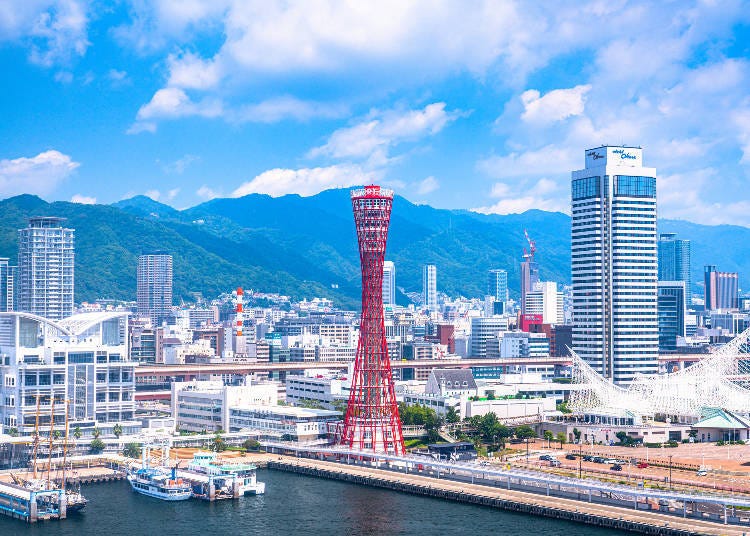
The city of Kobe flaunts an open, airy feel along its harbor along with a polished, refined streetscape in its hilly suburbs. If you enjoy urban exploration, Kobe is a bastion of fascinating neighborhoods packed with all kinds of tantalizing eateries, shops, and more. It takes just 20 mins to reach Kobe’s central Sannomiya Station from Osaka Station on the new-rapid JR train. The Hankyu line takes 30 mins from Osaka-Umeda Station to Kobe-Sannomiya Station via the special-rapid service.
Wakayama/Shiga
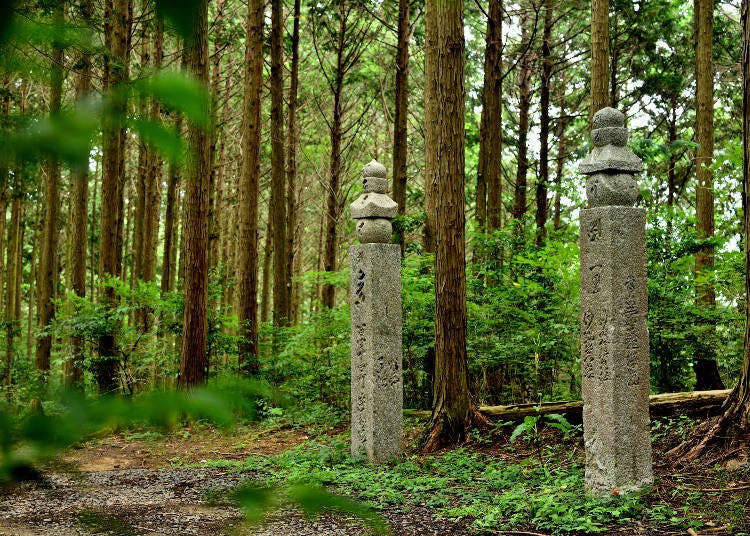
If you plan on going as far as Wakayama or Shiga prefectures, then we strongly suggest taking at least two days to explore all they have to offer thoroughly. The main highlight of Wakayama is the deeply spiritual Buddhist homeland of Mt. Koya (approx. 2 hrs from Osaka), while Shiga is home to Japan’s largest lake of Lake Biwa (approx. 40 mins-1 hr from Osaka Station).
For the myriad of reasons explored above, Osaka is a city equally adored by both Japanese locals and international travelers.
With so much to do, eat, and see, along with agreeable prices, friendly residents, and convenient transport, it’s undoubtedly worthwhile spending a sizable chunk of your time in Japan here. Use this guide as a base and start crafting the ultimate Osaka itinerary that matches your own unique style of travel!
*This article is accurate as of September 2021.
Kiko Matsuda, Keiko Kimura, Risa Tsushi, and a team of female writers familiar with Kansai. We love eating, drinking and traveling! We share fun information based on our experiences.
*Prices and options mentioned are subject to change.
*Unless stated otherwise, all prices include tax.
Popular Tours & Activitiess
Recommended places for you
-

Sunflower terminal (Osaka) Terminal 1
Other Sightseeing
USJ, Nanko Port
-

Kambei Sannomiyahonten
Yakiniku
Kobe, Sannomiya, Kitano
-

ISHIDAYA Hanare
Yakiniku
Kobe, Sannomiya, Kitano
-

Jukuseiniku-to Namamottsuarera Nikubaru Italian Nikutaria Sannomiya
Izakaya
Kobe, Sannomiya, Kitano
-

Kanzenkoshitsuyakinikutabehodai Gyugyu Paradise Sannomiya
Yakiniku
Kobe, Sannomiya, Kitano
-
Goods

Yoshida Gennojo-Roho Kyoto Buddhist Altars
Gift Shops
Nijo Castle, Kyoto Imperial Palace
-
Ad

Earthquake in Kyoto? Typhoon? What To Do If Disaster Strikes During Your Stay
-

Vintage Watch Hunting in Osaka (Umeda & Shinsaibashi): Rolex, Seiko, and Rare Finds
-
Ad

Discover Kyoto by the Sea: Explore Nature, History, and Culinary Tradition in "Another Kyoto"
-

Smart Buyer's Guide to Luxury Brand Resale in Osaka (Shinsaibashi & Namba)
-
Ad

From March 2026, Kyoto’s accommodation tax rate will change. What exactly is this tax used for?
-
Ad

4 Recommended Restaurants Open After 9 PM Near JR Nara and Kintetsu Nara Station
by: Shingo Teraoka
-

Secrets to Shopping in Japan: Guide to Annual Sales in Japan & Where to Shop
by: Miyu Shimada
-

10 Best Spots to See the Stunning Osaka Night Views!
-

What to Do In Osaka When It's Raining: 10 Fabulous Weather-Proof Tourist Hotspots
by: WESTPLAN
-

Etiquette in Japan: 'I Can’t Take a Photo Here?!' Top 5 Tips Tourists Always Forget in Kyoto
by: Kaori Kimura
-

Caught a Cold in Japan? What to Do When You're Sick or Hurt in the Kansai/Osaka Area
by: Guest Contributor
-

6 Surprisingly Cheap Things in Japan
- #best gourmet Osaka
- #things to do Osaka
- #what to do in kyoto
- #what to bring to japan
- #best gourmet Kyoto
- #new years in Osaka
- #what to buy in nanba
- #Visiting Osaka
- #onsen tattoo friendly arima
- #daiso
- #Visiting Kyoto
- #best japanese soft drinks
- #japanese fashion culture
- #japanese convenience store snacks
- #japanese nail trends














